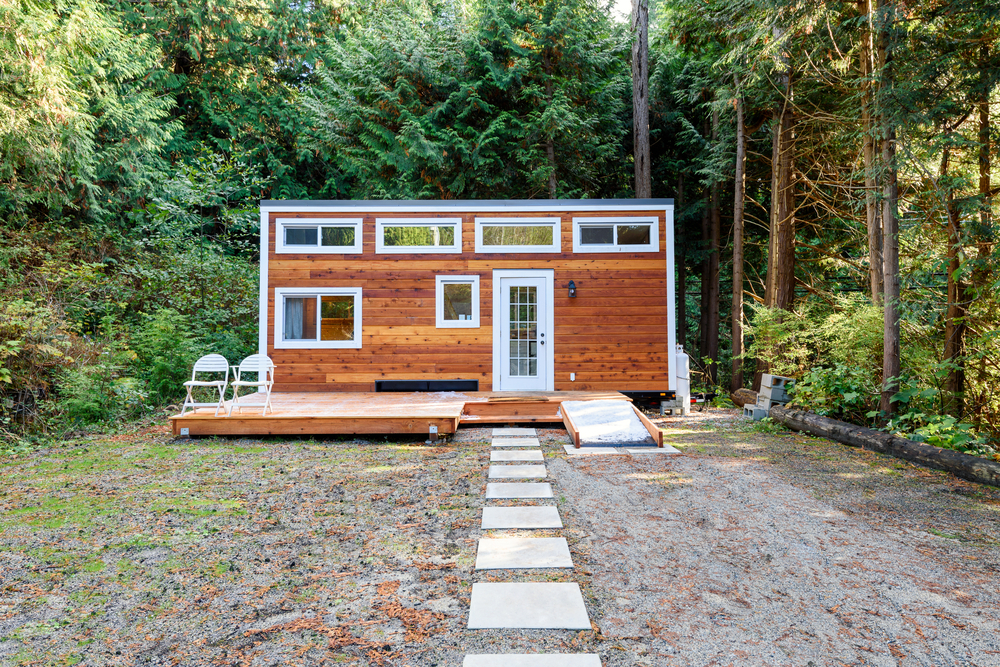
Mobile Home, RV & Tiny Home Insurance 101
Originally published 9/7/21 - Updated 1/13/23
While the interest in tiny dwellings or a more nomadic lifestyle is far from new, the mobile home, RV, and tiny home industries have boomed in recent years, especially following the pandemic. Many note the positive factors of eco-friendliness and affordability as primary reasons for choosing this alternative housing option according to stats from Millenium Magazine.
Whether you choose smaller-scale housing simply as a nomadic lifestyle choice, to downsize, or to save money, there are some important things to consider when purchasing home insurance to protect your small home. Contrary to what some might assume, typical home insurance policies will not cover your mobile home, RV, or custom-built tiny home. This is true even if you live in your smaller home full-time. A typical home insurance policy simply won't suffice. Read on to learn more information about insuring your smaller home:
What Kind of Insurance Coverage is Right For You?
Depending on your home type, you’ll need either RV, mobile home insurance, or a tiny home-specific policy. Each will protect your home and the personal items inside from perils like fire, theft, and falling objects.
Mobile Home Insurance
Mobile home insurance is a specific policy designed to cover a tiny home usually referred to as a “trailer”. These are written on a policy specifically designed to insure trailers, the trailer must be delivered on wheels and have a “title.” The mobile home can be set up on a permanent foundation or must be tied down and skirted.
RV Insurance
An RV is a vehicle that is licensed to drive on the highway and has living quarters. RVs are written on an auto policy specially designed to insure an RV. The policy includes auto liability coverage, uninsured/underinsured motorist coverage, medical payments, and comprehensive and collision coverage. If you’re insured and live in the RV full-time, an endorsement would need to be added to the policy for “full-timers” coverage.
Tiny Home Insurance
A tiny home is a manufactured home similar to a modular home. The home is delivered on a flatbed trailer in one piece and set up on a closed foundation or crawl space. Insurance for a tiny home is written on a homeowner policy form. Although not all insurance companies will agree to write a “tiny home”, there are carriers available that will write policies for these homes.
What is a Tiny Home?
You are likely already familiar with RVs and mobile homes. However, since tiny homes are still relatively new, it’s helpful to quantify what an insurance company would deem a tiny house. A tiny house by definition is a very small house. There are no official size limits or specifications in terms of the insurance. However, most of these homes are between 100 and 400 square feet. To get an idea of how that differs from regular-sized homes, consider the fact that most single-family dwellings built in 2019 were 2,301 square feet according to the U.S. Census Bureau. Tiny homes, as touched on above, can either be on wheels, moveable, or stationary. This distinction and how you use your home are key factors in what type of insurance coverage you need.
Having Proper Insurance is Important: Knowing Your Policy
Remember, your insurance provider can deny your claim if they find out that your home failed to meet the specified requirements necessary to guarantee coverage. This of course depends on your specific situation and geographic location. For RV coverage, you may need to have certain fixed installation appliances and facilities, such as plumbing to “meet” your policy requirements. It’s important to know all the details of your policy to ensure that you have met them in the event you need to file a claim.

